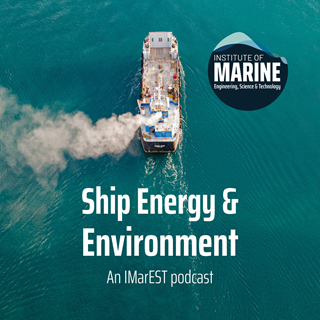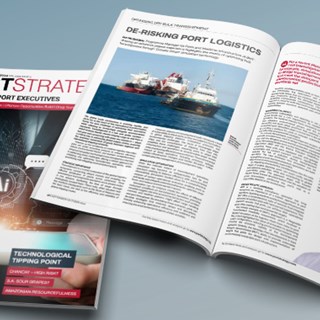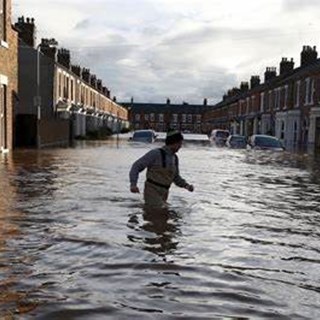
Riding the wave of climate change
Article by 'Waterline' magazine, Marina Industries Association
9 August 2023
The Federal Government’s landmark Climate Change Bills passed the Senate in late 2022, ensuring Australia’s reduction target of 43 per cent and net zero emissions by 2050 will be enshrined in legislation.
While increasing regulation to decarbonise now seems likely across all industries, the Federal Government has also recently signalled its intent to implement reforms to financial reporting for companies listed on the Australian Stock Exchange (ASX) that involve disclosure of climate risk. The disclosure requirements span across both ‘transition risk’ (e.g. the risks associated with decarbonisation) as well as ‘physical risks’ to businesses (e.g. the risks from more frequent and severe extreme weather and chronic climate impacts such as sea level rise).
The consultation paper (https://treasury.gov.au/consultation/c2022-314397) released in December 2022 outlines how the disclosure requirements are likely to be rolled out progressively over the next three years. They will target large financial institutions first, then apply to companies listed on the ASX and then ultimately to all business and industry sectors. This is similar to approaches that are being implemented in the UK, New Zealand and Singapore. State Governments and maritime public sector corporations such as ports are also starting to prepare for and respond to these climate disclosure requirements. This reflects that they too are affected by global financial markets and associated risks to their credit rating and borrowing potential; as well as addressing increasing stakeholder/customer/ user expectations towards moving to a lower carbon future and preparing for future climate uncertainty.
While most marinas and boat yards are small businesses and will be unaffected by climate disclosure reporting regulations in the near term, owners and operators are observing their own range of internal business drivers to address climate risk and resilience.
These include growing customer and user demand for marinas to be more responsible about carbon management, taking steps to understand their own carbon footprint and preparing for future technology changes to electricity and alternative fuels.
While there are now a range of feasible options available to reduce carbon emissions such as improved energy conservation and efficiency, improved waste and water management, electrification of plant and equipment, on site renewable energy generation (such as solar) and the purchase of green energy from utility providers, these decisions need to be carefully considered before embarking on setting targets such as carbon neutrality or net zero. As recent media has highlighted, purchase of carbon credits (e.g. offsets) also needs to be carefully considered in terms of the verification of the type and location of projects that are generating the credits.
In terms of physical risk from climate change, being located on the coast or in waterways, marina owners and operators want to understand if infrastructure can resist and be resilient to future extreme events, how new facilities need to be designed to address future risk and how extreme weather could affect insurance cover. They also want to understand how climate and extreme weather will potentially change operations including temporary suspension of operations, increased maintenance of facilities and an increased focus on disaster and emergency management.
In light of these factors, there is an increasing need for more targeted and sector-specific guidance for marinas and boat harbours about climate risk and resilience.
This has been recognised recently by PIANC (see https://www.pianc.org/) – the World Association for Waterborne Transport Infrastructure - who are progressing with the preparation of two new international guidelines in 2023/24 on marina decarbonisation and climate adaptation.
These guidelines will be developed with input also from representatives of the International Council of Marine Industry Associations (ICOMIA) and other industry experts.
Domestically, the MIA is also keen to support its membership to build awareness and respond to climate risk in a practical and responsible way. This includes recognising the efforts of those organisations that are seeking to take an industry best practice approach.

Greg Fisk is a Senior Associate at BMT and leads the firm’s global campaign related to climate risk and resilience.
Based in Brisbane, Australia, Greg has over 25 years of experience in natural hazard and climate change planning and adaptation studies with planning, transport, and conservation authorities.

N/A
Get ready to dive deep into maritime autonomy as we bring you technical experts, insightful opinions, and unmissable discussions.

Dr Thomas Beard
Episode 3 of IMarEST’s Ship Energy & Environment podcast series, addressed the ‘Realities and Challenges of Alternative Marine Fuels. Dr Thomas Beard, Clean Shipping Lead explores the practical side of the 'big four' alternative fuels.

N/A
The DCN spoke to our climate change risk, resilience and adaptation expert about preparing for the impacts of a changing climate.

N/A
With the UK and beyond facing unprecedented consequences from rising water levels and climate amelioration, BMT are helping our clients in their need for flood alleviation, prediction, mapping and mitigation. James While talks about 5 ways we can assist our clients.